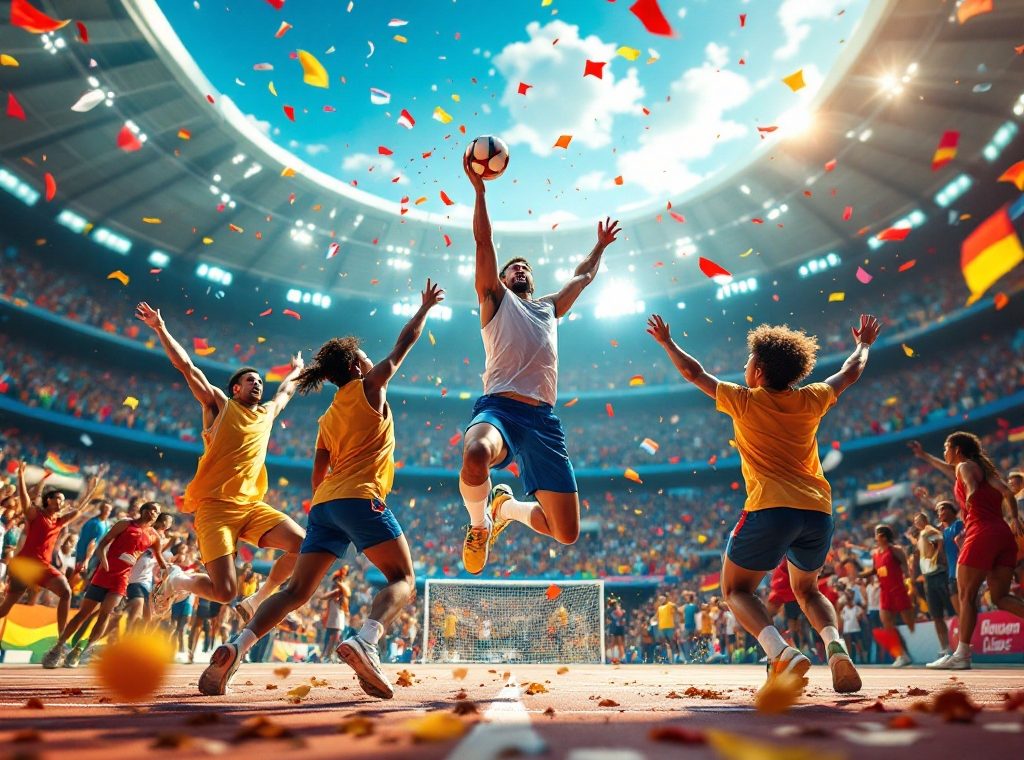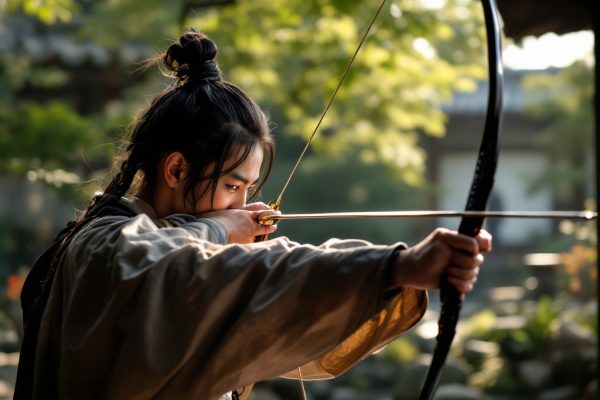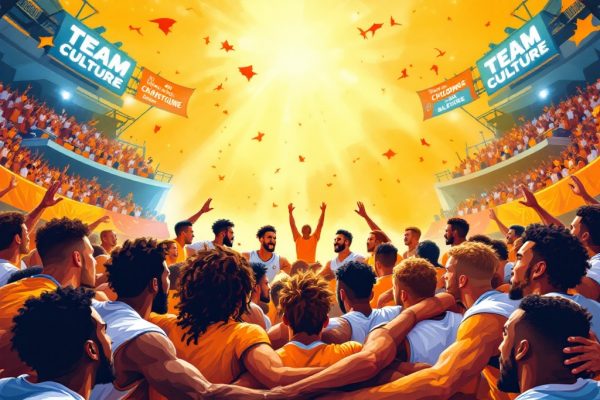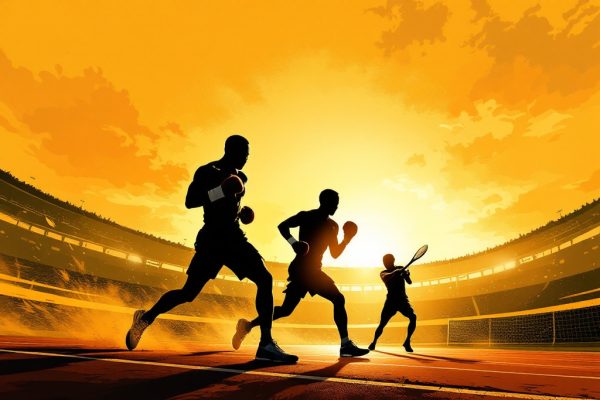Sport and Culture: The Relationship
From the Olympics to local community games, sport has become a powerful force shaping our world. It influences our leisure time, fuels multi-billion dollar businesses, and provides a platform for cultural expression and social change. This article explores the profound impact of sport, examining its role in shaping values, driving economic growth, and fostering national pride. Discover how media transforms athletic competition into a global spectacle, and how globalization is changing the future of sport. Dive in to understand the complex interplay between sport and society, and learn how it shapes our world.
Important information
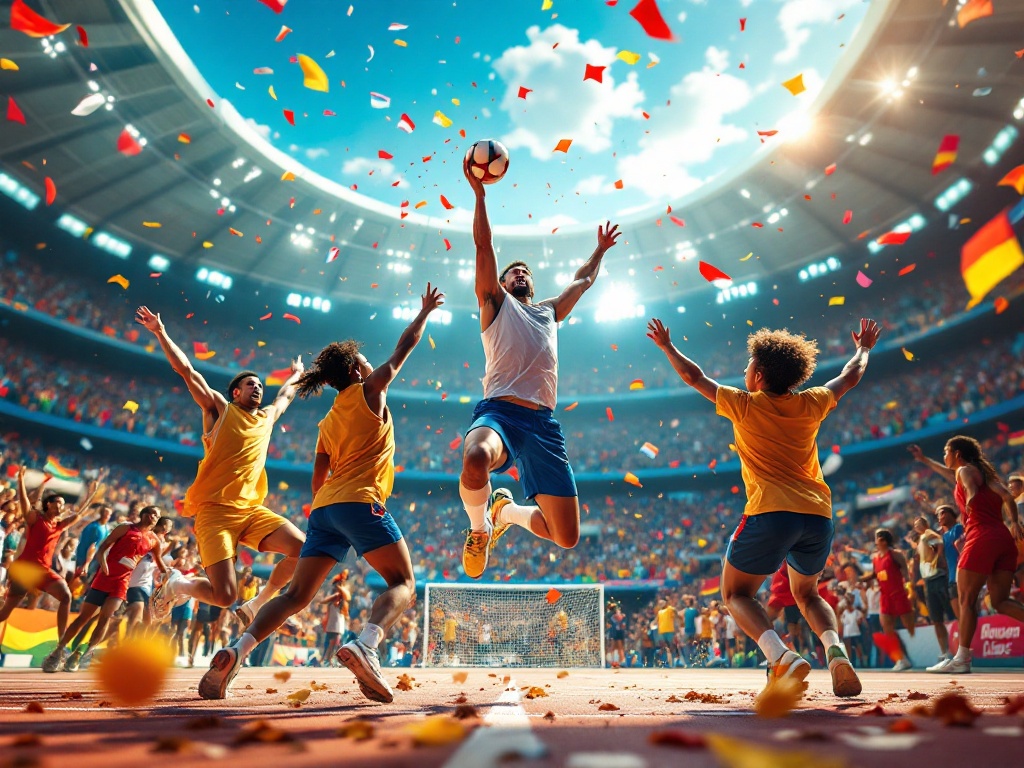
- Sport is a major social institution impacting leisure, business, and entertainment, while also shaping societal values like teamwork and discipline.
- Media significantly influences sports culture, shaping perceptions, driving commercialization, and creating a symbiotic relationship where media and sports are intertwined.
- Sport acts as a catalyst for social change, breaking down barriers, promoting inclusivity, and empowering individuals and communities.
- International sporting events contribute to global culture by fostering cultural exchange and promoting understanding between nations.
- Globalization shapes the evolution of sports, leading to the exchange of athletic practices but also potentially overshadowing local traditions.
The Role of Sport as a Social Institution
Sport’s evolution from organized competition and commercialization has deeply integrated it into modern life. It influences leisure, business, and entertainment, while reflecting and shaping our values and social norms. Furthermore, sport provides a powerful platform for cultural expression, connecting communities, and celebrating shared heritage. Conversely, cultural nuances worldwide shape how sports are perceived, played, and organized.
Sport’s Influence on Leisure, Business, and Entertainment
Sport plays a huge role in how we spend our free time, offering enjoyable activities from playing games to cheering on our favorite teams. It also fuels exciting business ventures, including sponsorships, merchandise, and lucrative media deals. The entertainment industry benefits significantly as well, through broadcasting, live events, and the rise of celebrity athletes. Sport boosts tourism by drawing fans to travel for major events, exploring new destinations. Its impact extends beyond entertainment, shaping our values by promoting teamwork, discipline, and healthy competition. Studies consistently demonstrate sport’s positive influence on individual well-being and community development.
Cultural Sociology and Sports Culture
Sports culture acts as a mirror to society, and cultural sociology helps us decipher this reflection by examining how sports embody our values and beliefs. National pride, for example, is frequently displayed through sport, yet, paradoxically, sport also functions within a globally standardized rule set.
Media plays a powerful role in shaping our perceptions of sports, creating a dynamic relationship where media portrayals influence our understanding of athletic achievement and competition. Consequently, sport often becomes a vital platform for discussing broader social and economic issues.
The impact of sport extends across various domains, including leisure, business, and entertainment. Furthermore, the sporting arena frequently serves as a testing ground for emerging societal trends, with new technologies and social movements often appearing there first.
Therefore, studying sports culture becomes essential for gaining deeper insights into the workings of society itself. It provides a unique lens through which we can understand our shared values, beliefs, and the forces that shape our world.
Values, Attitudes, and Behaviors in Sports
Sports culture significantly influences our values and behaviors, emphasizing not only competition and high performance, but also the importance of perseverance, discipline, and camaraderie. These qualities extend their reach far beyond the playing field, impacting society as a whole.
Teamwork
Teamwork, a cornerstone of athletic pursuits, cultivates essential cooperative skills applicable to various life situations.
Discipline
The discipline required for training instills self-control and fosters dedication.
Perseverance
The perseverance developed through sport builds resilience, enabling us to confront challenges head-on.
Performance
The inherent focus on performance encourages us to strive for excellence in all our endeavors.
Camaraderie
The strong sense of camaraderie inherent in sports creates a supportive community and fosters a vital sense of belonging.
Gendered Culture in Sports
Sports viewership often reflects societal gender dynamics, with both men and women frequently tuning in to men’s sports. This viewing disparity highlights key issues surrounding representation and participation in sports. It also underscores how cultural norms shape gender role expectations, both on and off the field.
Media’s Influence on Sports Culture
Media’s influence on sports culture has been profound over the last century, shaping how we perceive and value athletics. Its coverage dictates which sports gain popularity, impacting participation rates and fan bases. Media crafts narratives, creating heroes and villains, and molding our opinions of teams and leagues. Furthermore, it amplifies the cultural impact of sporting events, turning games into national spectacles and even global phenomena.
The Media-Sports Symbiosis
This symbiotic relationship has forged what some call the “media sports cultural complex,” where media and sports are inextricably linked. Media attention elevates a sport’s profile, while sports provide captivating content that drives viewership and generates revenue.
Commercial Implications
This interplay has significant commercial implications, influencing sponsorships, advertising, and even the overall sports economy. The explosive growth of esports, fueled by media attention, serves as a prime example.
However, this reliance on media creates vulnerabilities. Negative press can quickly damage a sport’s reputation, and the constant pursuit of compelling narratives can sometimes eclipse the core values of competition.
The Media Sports Cultural Complex
Media and sports share a strong connection, often called the “Media-Sports Cultural Complex”. This complex shows how media stories shape the influence of sports competitions. Media coverage creates shared experiences, builds stronger national identities, and forms collective memories. In short, media deeply affects how we see sports.
Media’s Role in Shaping Sports as a Cultural Form
Media transforms sports into a cultural phenomenon, shaping how we perceive and enjoy them. From television and online streaming to social media and print, these platforms dictate the presentation and understanding of sports. Media coverage influences fan engagement, impacting our connection with teams, athletes, and the sports themselves. By creating a shared narrative and collective experience, media solidifies sport’s cultural significance. Its influence is undeniable, making sports a cornerstone of our culture.
Commercialization and Media’s Impact on Sports Culture
Media’s powerful influence significantly shapes the business of sports, transforming how we experience and perceive athletic competition. This commercialization drives athlete endorsements and turns sporting events into spectacular productions, often prioritizing entertainment over pure athletic achievement. The resulting focus on revenue impacts sports culture in several key ways:
Impact on Game Schedules
Game schedules are often structured to maximize television viewership and advertising revenue, sometimes at the expense of player well-being and fair competition.
Presentation of Broadcasts
Broadcasts are designed to be engaging and visually appealing, incorporating elements of entertainment to attract a wider audience.
While media hype can generate excitement, it can also foster unrealistic expectations and place immense pressure on athletes.
Sport and Social Change
Sport is a powerful catalyst for social change, breaking down barriers and stereotypes while fostering inclusivity and embracing diversity. It empowers marginalized communities and promotes equality, providing opportunities for youth leadership.
Beyond this, sport challenges prejudices and promotes understanding, serving as a platform for social progress. It creates positive change both within societies and globally, building bridges between cultures. Sport inspires and unites people, proving itself a true force for good.
Breaking Down Social Barriers and Stereotypes
Sports possess a unique ability to unite people, breaking down social barriers and challenging stereotypes about gender, race, religion, and ability. This fosters understanding and respect across communities.
The Special Olympics, for instance, demonstrates the strength of inclusivity. Women’s increasing presence in traditionally male-dominated sports further highlights this positive shift.
These developments build stronger, more connected communities. Studies show how integrated sports programs reduce prejudice and cultivate mutual respect.
Sport as a Tool for Empowering Athletes and Spectators
Sports empower athletes, building self-esteem, leadership, and resilience. It provides a platform for growth and achievement, regardless of background.
Moreover, sport unites diverse groups, creating a shared identity and challenging societal norms and stereotypes. This, in turn, promotes acceptance and understanding.
Beyond the athletes themselves, sport inspires spectators, fostering community and promoting inclusion. Witnessing athletic success motivates everyone to overcome challenges.
Ultimately, sport offers opportunities for participation and engagement, empowering individuals and strengthening social bonds.
Sports and the Sociocultural Shift
Sports reflect our evolving world, mirroring our values. The increasing number of women in sports, for instance, highlights changing gender roles. But sports don’t merely reflect change; they actively create it. Jackie Robinson’s brave integration of baseball challenged racial segregation, demonstrating their power to reshape society. Sports act as both a mirror and a catalyst, reflecting and shaping our world.
This dynamic interplay is central to understanding their cultural significance.
Sports sociology emphasizes this complex relationship, examining how sports are simultaneously influenced by and influential within the culture. It’s a reciprocal exchange, a two-way street of constant interaction.
Sport as Both Symptom and Cause of Change
Sport reflects our evolving world, mirroring shifts in gender roles, racial dynamics, and economic realities. It also actively shapes these changes. For instance, the increasing number of women in sports demonstrates evolving gender roles and challenges traditional notions of femininity. This signifies a significant cultural shift. The integration of diverse athletes reflects and promotes growing racial equality, marking another key area of progress. The globalization of sports, with its international leagues and events, both mirrors and accelerates global interconnectedness. Sport acts as both a reflection of and a catalyst for societal transformation.
The Cultural Turn in Sports Sociology
Sports sociology’s “cultural turn” examines sport as a cultural practice, exploring how it generates meaning, shapes identities, and interacts with society. This perspective emphasizes the symbolism embedded within sport—rituals, narratives, and traditions—while also considering power dynamics and social inequalities. It also analyzes how sport reflects broader cultural values.
Sport as a Vehicle for Cultural and National Identity
Sport fuels national pride. Events like the Olympics and World Cup ignite fervent patriotism as national teams compete on the world stage. The 1980 “Miracle on Ice” transcended sport, becoming a potent symbol of national triumph. Studies confirm this link between victory and pride. In Brazil, football isn’t just a game; it’s woven into the fabric of national identity, with icons like Pelé inspiring generations.
Furthermore, sport fosters citizenship. Community programs build social skills and instill civic values. Research shows youth participation correlates with adult engagement.
Global culture is shaped by international sporting events. The Olympics bring together athletes from diverse backgrounds, promoting cross-cultural understanding. The World Cup, hosted across the globe, exposes audiences to new cultures and stimulates tourism, while broadcasts create shared experiences for billions.
These events also facilitate cultural exchange. The 2002 World Cup in South Korea and Japan showcased Asian traditions to a global audience. As sports like basketball and baseball spread internationally, they influence local customs and create new cultural blends. However, this globalization can also lead to cultural homogenization, potentially diminishing the unique qualities of traditional sports.
Sport in the Context of National Pride and Citizenship
Sport unites a nation, forging shared experiences that bind its people together. This fosters patriotism and a sense of belonging, amplified when participating in global events. Such participation strengthens national pride and reinforces citizenship, transforming victories into potent symbols of national strength and cultural values. These shared moments create lasting memories, building community and solidifying national identity.
International Sporting Events and Global Culture
International sporting events like the Olympics and the FIFA World Cup provide a powerful platform for global cultural exchange, attracting billions of viewers and generating substantial revenue. These events foster intercultural dialogue by showcasing diverse cultural expressions through ceremonies, music, and athletic competition. This global reach promotes cultural understanding and appreciation, contributing to a sense of shared global community.
The Future of Sport and Culture
Globalization profoundly impacts the evolution of sports. Major events like the Olympics and the World Cup expose diverse cultures to new athletic pursuits, often leading to broader participation. Enhanced media and technology connectivity quickly spreads sports information, influencing training methods, competition structures, and fan experiences. The international movement of athletes and coaches fosters knowledge and expertise exchange, further advancing global sports development.
Understanding the Interplay
Understanding this complex relationship between sport, culture, and globalization requires a multidisciplinary approach, incorporating insights from:
- Sociology,
- anthropology,
- economics, and
- media studies.
Analyzing Cultural Significance
Analyzing a sport’s cultural significance involves considering:
- Historical context,
- social structures, and
- economic factors.
Examining media portrayals of athletes and events provides valuable insights into a sport’s cultural impact. Investigating the financial aspects of sports globalization reveals how commercial interests shape athletic practices.
Globalization and the Evolution of Sports Practices
Globalization significantly shapes the evolution of sports, fostering the exchange of training techniques and athletic pursuits across borders. This cross-cultural exchange creates a dynamic fusion of styles and strategies, enriching the diversity of sports. For example, Western athletes have embraced practices like yoga and Pilates. However, this global interconnectedness can also lead to homogenization, with popular international sports sometimes overshadowing local traditions. Consequently, participation in traditional games may decline. Furthermore, globalization transforms how we consume and interact with sports, as global media and marketing campaigns shape our sports-related identities. The influence of renowned athletes extends to fashion and culture worldwide, impacting diverse communities.
Benefits of Globalization in Sports
- Exchange of training techniques and athletic pursuits across borders.
- Fusion of styles and strategies, enriching the diversity of sports.
- Increased exposure to a wider range of sports and training methods.
Drawbacks of Globalization in Sports
- Homogenization of sports, potentially overshadowing local traditions.
- Decline in participation in traditional games.
- Influence of global media and marketing on sports-related identities.
Interdisciplinary Approaches to Understanding Sport
Sport is a multifaceted phenomenon best understood through interdisciplinary approaches, combining sociology, economics, and cultural studies. These perspectives illuminate sport’s impact beyond the field of play.
This multifaceted lens reveals sport’s influence on:
- identity formation,
- economic systems,
- societal transformations.
For instance:
- Economics clarifies the financial aspects of sport.
- Sociology examines its social role.
- Cultural studies further explore how sport shapes our values and beliefs.
This powerful combination provides a comprehensive understanding of sport’s true significance.

